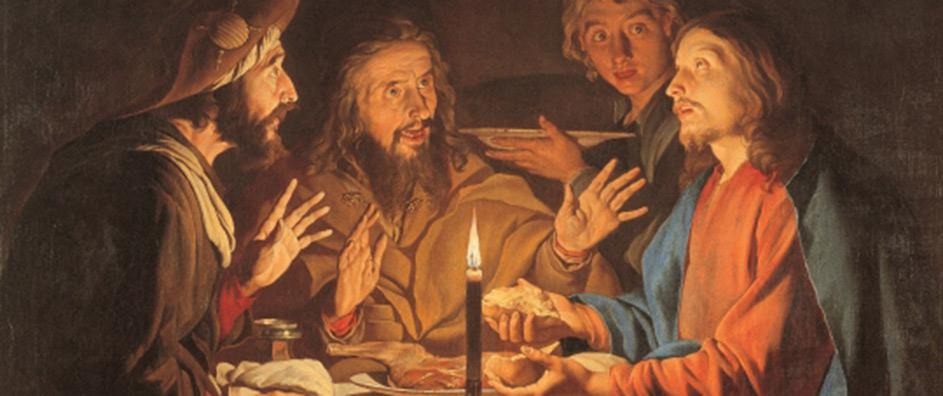The Gospel of John, distinct from its synoptic counterparts, offers an intricate narrative that encapsulates the essence of the Resurrection of Christ and its profound ramifications on humanity and spiritual cognition. This gospel transcends mere historical recounting; it delves into the metaphysical and existential dimensions of faith, thereby inviting believers and seekers alike to engage with its rich tapestry of divine revelation.
The advent of Christ’s Resurrection can be envisioned as the dawn breaking across a bleak horizon—an embodiment of hope. This metaphorical awakening parallels the inherent potential within humanity to rise above its own limitations. The resurrection signifies more than just a physical return from death; it exemplifies an ontological shift from mere existence to a life imbued with spiritual significance.
Throughout the Gospel of John, the theme of light and darkness serves as a poignant metaphor for understanding the nature of Christ’s life and mission. The duality represents the perennial struggle between ignorance and enlightenment, sin and redemption. Christ emerges as the quintessential light—illuminating the path of salvation and revealing the deeper truths of existence. In John 8:12, He proclaims, “I am the light of the world; whoever follows me will never walk in darkness but will have the light of life.” This assertion encapsulates the profound spiritual awakening that accompanies the realization of His resurrection.
The resurrection narrative, particularly in John’s account, posits an intriguing dichotomy: the physical versus the spiritual. Mary Magdalene’s encounter with the risen Christ in the garden epitomizes this duality. Initially, she perceives her Master through the lens of human loss, yet her experience transforms into a profound recognition of His transcendental nature. This moment is transformative—it symbolizes the transition from despair to enlightenment, mirroring the journey of many souls as they navigate their own trials and tribulations.
Moreover, the resonance of the resurrection is found in its universal appeal. The Johannine perspective emphasizes that the resurrection is not merely an event confined to time and space but rather an eternal reality that continues to influence believers. The symbolic act of rising invites individuals to engage in their own spiritual resurgence. The culmination of faith, understanding, and ethical living converges in this narrative, creating a comprehensive framework for spiritual growth.
The theological implications of the resurrection extend beyond the acknowledgment of Christ’s divinity. They invite introspection about the nature of human existence and the potential for transformation inherent within each individual. The resurrection serves as a clarion call—urging believers to embrace their spiritual agency and to awaken to the potential within themselves. It beckons the faithful to rise, as Christ did, above the tribulations of the world, to partake in a higher moral and ethical order.
In the context of Baha’i teachings, the resurrection is emblematic of the broader concept of renewal and the continuous unfolding of divine knowledge. The prophetic nature of the resurrection provides a foundation for understanding the cycle of spiritual teachings throughout history. Each manifestation of God, including Baha’u’llah, carries messages designed to elevate humanity, encouraging a collective resurrection of the human spirit.
This interconnectedness of divine principles underscores the universality of truth. Just as the resurrection signifies a new chapter in the spiritual narrative, Baha’i teachings assert that each revelation in time serves as an invitation to humanity to evolve into greater harmonies of understanding. The restitution of the self, much like the resurrection, is a communal ascent toward unity and peace.
Furthermore, engaging with the Gospel of John reveals not only the personal implications of resurrection but also the communal responsibility that arises from such enlightenment. The transformative essence of Christ’s return catalyzes a ripple effect—encouraging believers to manifest love, compassion, and justice in their communities. The narratives within John’s gospel serve as a guide for ethical living, calling each individual to embody the principles of mercy and forgiveness that Christ exemplified.
As one contemplates the narrative of resurrection, it becomes evident that the message extends into the realm of personal and communal transformation. The vibrant imagery and profound teachings invite believers to transcend their individual limitations and to inspire others. In this sense, the resurrection becomes not only a personal journey but a collective mission toward fostering spiritual enlightenment and cohesion within the fabric of society.
Ultimately, the Gospel of John intricately weaves the narrative of resurrection with an appeal that is both individual and universal. The insights gleaned from this profound text encourage a re-evaluation of our understanding of life, death, and rebirth. The reality of Christ’s resurrection embodies an enduring promise—the assurance of renewal, the boundless possibilities that lie ahead when one engages deeply with the divine essence. Embracing this truth propels believers toward a richer, more fulfilled existence, characterized by love, understanding, and an unwavering commitment to the pursuit of spiritual truth.
